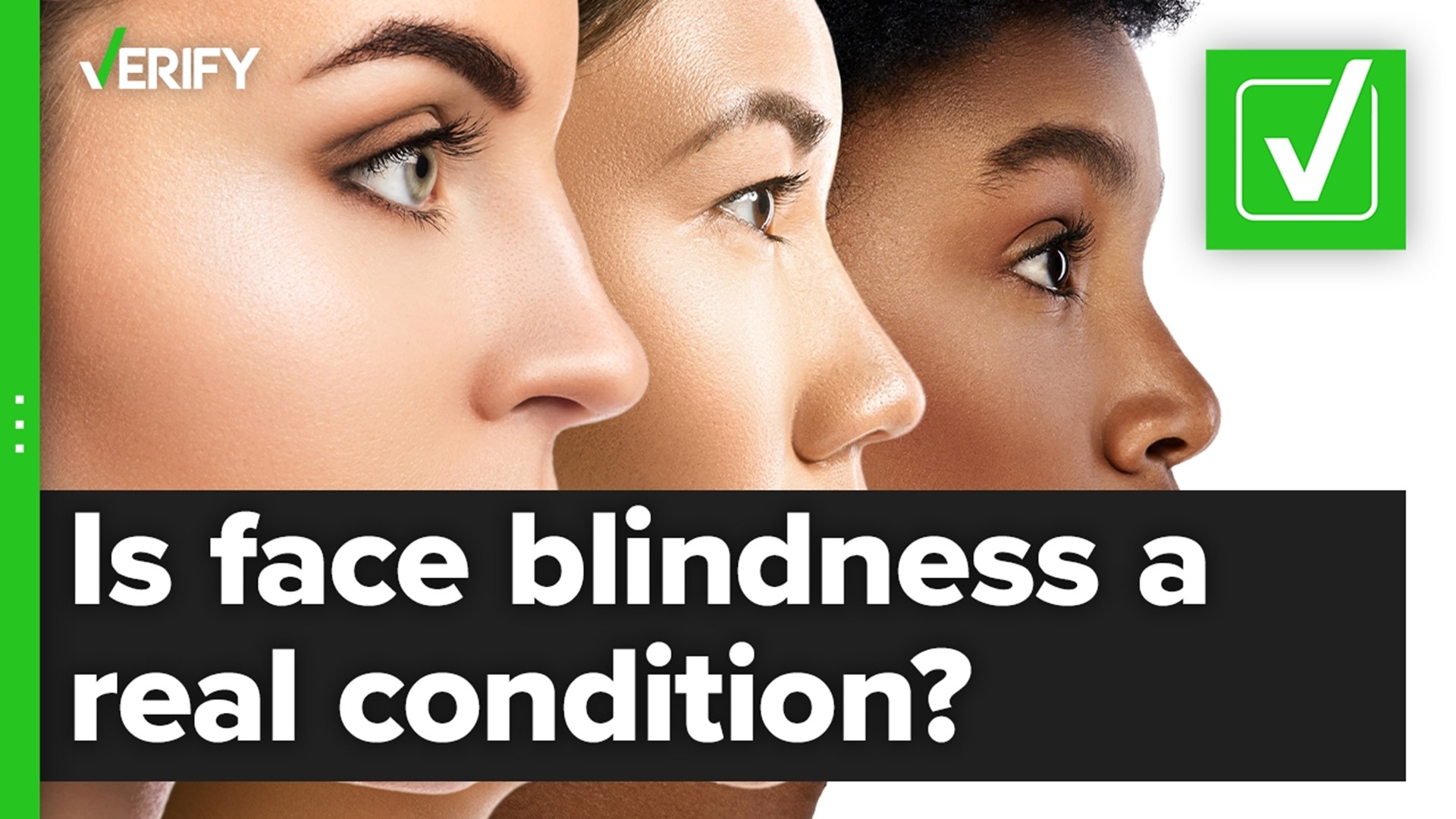In a recent interview with GQ, actor Brad Pitt said he believes he suffers from prosopagnosia, more commonly referred to as “face blindness.” Although he hasn’t been officially diagnosed, he said he struggles to remember new people and to recognize their faces.
Following the interview, searches for the condition have spiked online, and some on social media asked if the condition is real.
THE QUESTION
Is face blindness a real condition?
THE SOURCES
Brad Duchaine, Ph.D., a professor of psychological and brain sciences at Dartmouth College and co-founder of faceblind.org
THE ANSWER
Yes, face blindness, also known as prosopagnosia, is a real condition.
WHAT WE FOUND
Prosopagnosia, commonly referred to as face blindness, is a neurological condition in which a person cannot recognize faces. This includes faces of people they know well, and it can even include their own face when viewed in a mirror or photo.
Face blindness is not related to vision problems, memory issues or learning disabilities, the UK’s National Health Service (NHS) says.
According to Brad Duchaine, a professor of psychological and brain sciences at Dartmouth College and co-founder of faceblind.org, there are two different types of prosopagnosia: acquired prosopagnosia and developmental prosopagnosia. Medical experts have known about acquired prosopagnosia — difficulties with facial recognition that occur as a result of some brain damage, like a stroke — for many decades. Developmental prosopagnosia, on the other hand, is newer to experts.
“It's only been in the last 20, 25 years that we've realized that there are a lot of people out there who've never suffered any brain damage, and yet have a really tough time recognizing facial identity,” Duchaine said. “The way it manifests is simply they fail to recognize people that they are very familiar with. So maybe they fail to recognize people that they work with; often, they have the most trouble when they're meeting people out of context.”
For example, Duchaine says if a person with face blindness runs into a work colleague at the grocery store, they might not recognize them.
Experts, including Duchaine, believe developmental prosopagnosia to be genetic, and say it often runs in families.
Developmental prosopagnosia is permanent, and cannot be cured. The National Institute of Health (NIH) and NHS say the face processing mechanisms in the brains of some people with acquired prosopagnosia can be retrained, but that is dependent on how old the person was when they got the injury, the severity of the injury and the timing of the treatment.
People living with face blindness may try unique strategies to identify people. Duchaine said they might commit voices to memory or identify people by clothes or hair. One person Duchaine knew studied people’s teeth to identify them. The NHS adds that another common way for people with face blindness to identify others is by the way they walk.
The NHS and faceblind.org say several studies suggest as many as 1 in 50 people may have prosopagnosia, although Duchaine noted any estimate depends on where someone wants to draw the line on prosopagnosia. Individuals have various levels of facial recognition ability, Duchaine explained, and not all people with prosopagnosia experience the same levels of difficulty in identifying faces. Although the NHS says most people with face blindness simply fail to recognize faces, the NIH notes that in some cases a person with face blindness might not be able to distinguish a face as different from any other object.
Baptist Health Hospital in Kentucky notes there are four different kinds of tests that neurologists might use to diagnose face blindness, all of which are used to assess a person’s ability to recognize faces, read emotional cues and determine personal characteristics such as age and sex.
Outside of tests, there are other indications a person may have prosopagnosia. A person might have poor recognition of familiar people in photos, an inability to describe faces, trouble following plot lines in movies or TV shows with multiple characters, or issues recognizing certain facial expressions, the NHS and Baptist Health say.
It’s not uncommon for people with face blindness to have social anxiety, or to worry they appear rude or uninterested when they're unable to recognize a person. That brings us back to GQ’s interview with Brad Pitt. “He fears it’s led to a certain impression of him: that he’s remote and aloof, inaccessible, self-absorbed,” the article said.
“I suspect actors meet an awful lot of people at work. And so if it's hard to keep track of people, that's going to be a challenge,” Duchaine said. “And so I certainly can imagine it impacts you as an actor. There are a lot of professions where it's tough. I mean, teachers have it tough, they can't keep their kids straight. I hear from people who work in sales, and they've just got horror stories of not recognizing people they're trying to do deals with. There's an awful lot of jobs where it's important to be able to recognize others.”
We can’t verify whether Pitt has prosopagnosia, or to what severity he has it if he does, but the condition itself is both real and more common than previously thought.
More from VERIFY: No, CERN’s particle accelerator can’t create a cosmic black hole












